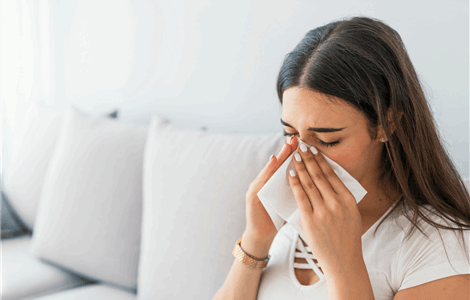
Seasonal allergies are way more common than you may think. If you can't stop sneezing and coughing during particular times of the year, there are high chances that you have seasonal allergies. You might believe that pollen is the source of your discomfort, but other factors could also be to blame. The best way to find out what's causing it is our GP for seasonal allergies in Marbella.
What is a seasonal allergy?
Seasonal allergies, which are also known as "hay fever" tend to happen when your immune system reacts more than usual to an outdoor allergen, just like pollen. They are simply typical allergy signs and symptoms that occur during particular times of the year, which is usually when outdoor molds are releasing their spores, grasses, and weeds are releasing small particles of pollen into the air in order to fertilize other plants.
What are the symptoms of seasonal allergies?
Some symptoms that turned out to be most common are:
- stuffy or runny nose
- itchy throat, ear canal or sinuses
- sneezing
- itchy and watery eyes
- postnasal drainage
- ear congestion
Symptoms that are not as common include:
- shortness of breath
- headache
- coughing
- wheezing
Don't hesitate to make an appointment with our GP for seasonal allergies in Marbella in order to ease and treat your allergy symptoms.
What causes seasonal allergies?
Seasonal allergies typically occur when the immune system identifies an aerial element that normally is harmless as dangerous. The reaction is to release histamines and some other kind of chemicals in the bloodstream in response to that allergen or substance. The allergic reaction`s symptoms are caused by these substances. However, if you're not sure what you are allergic to, don't hesitate to contact our GP for seasonal allergies in Marbella.
Triggers of seasonal allergies differ from one season to another.
Spring
At this time of the year, it's usual that trees are the ones to blame for the majority of springtime seasonal allergies. The type of trees includes: birch, poplar, oak, olive, elm, ash, beech and alder.
Summer
The element that is responsible for your hay fever now is grasses. Some examples could be: Bermuda, Johnson grass, orchard, sweet vernal, timothy but also weeds, just like English plantain and Russian thistle.
Fall
Ragweed will now be the trigger of your seasonal allergy. Ragweed belongs to the Ambrosia genus, which contains more than 40 species worldwide. Their pollen is a widespread allergen, and ragweed allergy symptoms could be very severe.
Winter
Several outdoor allergies are dormant by winter. As a result, many people that experience seasonal allergies benefit from the cold weather. If you have a seasonal allergy, indoor allergens just like mold, dust mites and pet dander, or cockroaches could trigger an allergic reaction.
What should you avoid if you suffer from seasonal allergies?
You can take small steps, such as checking the pollen forecast in your area and try staying at home when the level of pollen is high. You could also try:
- limit the time you spend outside
- make sure to have your windows shut
- don't hesitate to wear a dust mask when you spend time outdoors.
- You should as well avoid cigarette smoke, because there are chances that it could aggravate your hay fever symptoms.
When to contact our GP for seasonal allergies in Marbella
You should contact our GP for seasonal allergies in Marbella if: your allergies are making you experience symptoms like difficulty breathing, clogged nose or chronic sinus infections.